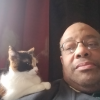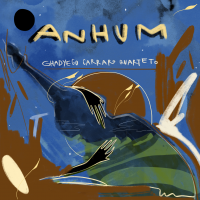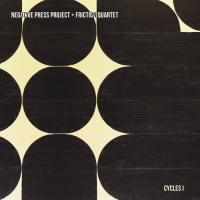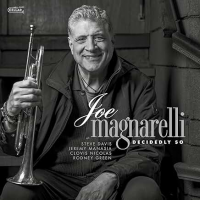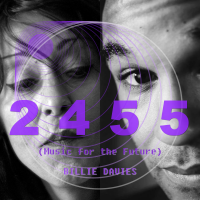Home » Jazz Articles » Album Review » Wadada Leo Smith: Rosa Parks: Pure Love
Wadada Leo Smith: Rosa Parks: Pure Love
Overall the music is stark and dramatic. The string quartet carries the majority of the instrumental load. The players fill the space, bowing in long arcs with elements of wariness and tension. Intermittent statements from the horns and drums give the music color while the voices add humanity and body. The singers take turns performing texts mostly written by Smith and each contributes a different texture and feeling. Their contrasting approaches really stand out in the section that comprises "Change It!," "The Truth," and "No Fear," accompanied by either the string quartet's edgy drones or a single, hovering viola or cello with Pheeroan AkLaff adding drum accents.
The "Vision Dance" sections of the oratorio bring the trumpets into the picture. They interact with the strings and percussion, bubbling up from an agitated murmur on "Rosa's Blue Lake" and pealing out of a hazy weave on "Defiance." Smith steps briefly to the front for crying and calling exchanges with Graham Haynes on "A Blue Casa" and a solo on "Apartheid." In addition, Smith leads in and out of certain sections with bits of old solo recordings by himself and his partners in the early AACM group, the Creative Construction Company: Steve McCall, Anthony Braxton and Leroy Jenkins.
This is a moving work. The dignified presentation of the singers is enhanced by the flowing tapestry of sound woven together by the various musical units. It has a spiritual beauty that is appropriate to the legacy of Rosa Parks and is yet another testament to Wadada Leo Smith's creativity.
Track Listing
Prelude: Journey; Vision Dance 1: Resistance and Unity; Rosa Parks: Mercy, Music for Double Quartet; Song 1: The Montgomery Bus Boycott - 381 Days of Fire; Song 2: The First Light, Gold; Vision Dance 2: Defiance, Justice and Liberation; Song 3: Change It!; Song 4: The Truth; Song 5: No Fear; Vision Dance 3: Rosa´s Blue Lake; Song 6: The Second Light; Vision Dance 4: A Blue Casa; Song 7: Pure Love; The Known World: Apartheid; Postlude: Victory!
Personnel
Wadada Leo Smith
trumpetWadada Leo Smith, composer, trumpet; Karen Parks, vocalist; Min Xiao-Fen, vocalist; Carmina Escobar, vocalist; Shalini Vijayan, violin; Mona Thian, violin; Andrew McIntosh, viola; Ashley Walters, cello; Ted Daniels, trumpet; Hugh Ragin, trumpet; Graham Haynes, cornet; Pheeroan akLaff, drum-set; Hardedge, electronic.
Album information
Title: Rosa Parks: Pure Love. An Oratorio of Seven Songs | Year Released: 2019 | Record Label: TUM Records
Tags
PREVIOUS / NEXT
Support All About Jazz
 All About Jazz has been a pillar of jazz since 1995, championing it as an art form and, more importantly, supporting the musicians who make it. Our enduring commitment has made "AAJ" one of the most culturally important websites of its kind, read by hundreds of thousands of fans, musicians and industry figures every month.
All About Jazz has been a pillar of jazz since 1995, championing it as an art form and, more importantly, supporting the musicians who make it. Our enduring commitment has made "AAJ" one of the most culturally important websites of its kind, read by hundreds of thousands of fans, musicians and industry figures every month.

